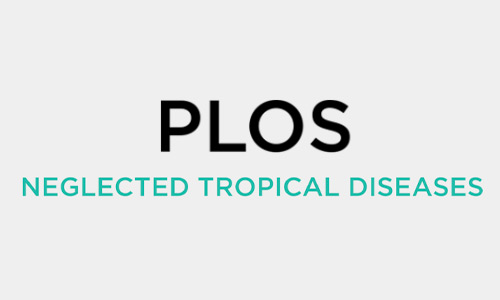- Follow Us
Scientific Publications
High-profile publications featuring CDI Labs next-gen proteomics technologies and services
355 Total Publications
Refine Your Search
Publication Details
- Date
- Link
- + Abstract

American Cancer Society - Cancer
- Main Product: HuProt
- HuProt: Identification of novel prognostic autoantibodies in diffuse large B-cell lymphoma treated with rit...mab plus cyclophosphamide, doxo...cin, vinc...tine, and pred...sone via a high-throughput antigen microarray
- Liyuan Dai MBBS, Haizhu Chen MD, Qiaoyun Tan MD, Yanrong Wang MM, Lin Li MD, Ning Lou MBBS, Guangyu Fan MBBS, Tongji Xie...
- Dept of Clinical Laboratory, National Cancer Center, Chinese Academy of Medical Sciences
R-CHOP (rituximab plus cyclophosphamide, doxorubicin, vincristine, and prednisone) is a standard first-line treatment for diffuse large B-cell lymphoma (DLBCL). However, 20%–40% of patients survive less than 5 years. Novel prognostic biomarkers remain in demand.

Wiley: Immunological Reviews
- Main Product: HuProt
- The immune system in Down Syndrome: Autoimmunity and severe infections
- Meredith Ramba, Dusan Bogunovic
- Center for Inborn Errors of Immunity, Icahn School of Medicine
Over 200,000 individuals in the United States alone live with Down Syndrome (DS), the most common genetic disorder associated with intellectual disability. DS has a constellation of features across the body, including dysregulation of the immune system. Individuals with DS have both a higher frequency of autoimmunity and more severe infections than the general population, highlighting the importance of understanding the immune system in this population. Individuals with DS present with dysregulation of both the innate and adaptive immune systems.

Journal of Cellular and Molecular Medicine
- Main Product: HuProt
- FOXP3-regulated lncRNA NONHSAT136151 promotes colorectal cancer progression by disrupting QKI interaction with target mRNAs
- Handong Huang, Xiaoxiang Liang, Weizheng Wu, Tao Yuan, Zhengquan Chen, Lin Wang, Zhenyu Wu, Tao Zhang, Kai Yang, Kunming Wen
- Soochow University Medical College
The role of lncRNAs in the pathogenesis of cancer, including colorectal cancer (CRC), has repeatedly been demonstrated. However, very few lncRNAs have been well annotated functionally. Our study identified a novel lncRNA upregulated in CRC, NONHSAT136151, which was correlated with clinical progression. In functional assays, NONHSAT136151 significantly enhanced CRC cell proliferation, migration and invasion. Mechanistically, NONHSAT136151 interacted with RNA-binding protein (RBP) QKI (Quaking) to interfere with QKI binding to target mRNAs and regulate their expression.

Oxford Academic
- Main Product: HuProt
- Potential HIV vaccine gp41 epitope targeting antibodies identify peptides with similarity to proposed Kawasaki disease related peptide, suggesting non-specific mimotope targeting of acidic amino acid enriched regions
- Sojar Hakimuddin, PhD, Sarah Baron, BS, Mark D Hicar, MD, PhD
- University at Buffalo
We have previously isolated a highly mutated (83% homologous to predicted heavy chain germline) antibody (Ab) termed C group 76-Q13-6F5 (6F5) that targets a conformational epitope on gp41. 6F5, though non-neutralizing, has the capacity to mediate Ab dependent cell cytotoxicity (ADCC). When the variable chain (predicted to be VH1-02 derived) was mutated to germline (termed C group 76 ancestor, or 76Canc), surprisingly this Ab still exhibited significant ADCC activity.

Dove Press
- Main Product: HuProt
- Characteristics of Serum Autoantibody Repertoire and Immune Subgroup Variation of Tuberculosis-Associated Obstructive Pulmonary Disease
- Jiang M, Pang N, Wang J, Li Z, Xu D , Jing J, Chen D, Li F, Ding J, Li Q
- Xinjiang Key Laboratory of Respiratory Disease Research
Studying the potential etiology and pathogenesis of tuberculosis-associated chronic obstructive pulmonary disease (TOPD) from an autoimmunity perspective may provide insights into peripheral blood autoantibodies and immune cells, as well as their interactions.

BMC - Cancer Cell International
- Main Product: HuProt
- A novel autoantibody signatures for enhanced clinical diagnosis of pancreatic ductal adenocarcinoma
- Tiandong Li, Junfen Xia, Huan Yun, Guiying Sun, Yajing Shen, Peng Wang, Jianxiang Shi, Keyan Wang, Hongwei Yang & Hua Ye
- College of Public Health, Zhengzhou University
Pancreatic ductal adenocarcinoma (PDAC) is a devastating disease that requires precise diagnosis for effective treatment. However, the diagnostic value of carbohydrate antigen 19 − 9 (CA19-9) is limited. Therefore, this study aims to identify novel tumor-associated autoantibodies (TAAbs) for PDAC diagnosis.

Wiley: Cancer Science
- Main Product: HuProt
- ZPR1 is an immunodiagnostic biomarker and promotes tumor progression in esophageal squamous cell carcinoma
- Guiying Sun, Hua Ye, Huijuan Liu, Tiandong Li, Jiaxin Li, Xiaoyue Zhang, Yifan Cheng, Keyan Wang, Jianxiang Shi, Liping...
- Dept of Epidemiology and Statistics, College of Public Health, Zhengzhou University,
To evaluate the potential of zinc finger protein 1 (ZPR1) as a diagnostic biomarker and explore the underlying role for esophageal squamous cell carcinoma (ESCC). A human proteome microarray was customized to identify anti-ZPR1 autoantibody, and enzyme-linked immunosorbent assay (ELISA) was adopted to assess the diagnostic performance of anti-ZPR1 autoantibody in 294 patients with ESCC and 294 normal controls.

PLOS - Neglected Tropical Diseases
- Main Product: HuProt
- ASPSCR-1 and Sirt-5 alleviate Clonorchis liver fluke rCsNOSIP-induced oxidative stress, proliferation, and migration in cholangiocarcinoma cells
- Meng Bian, Shan Li, Hanzong Zhou, Lijun Bi, Yong Shen, Chen Tingjin, Xinbing Yu, Yan Huang, Qingxia Xu
- Dept of Clinical laboratory, Zhengzhou University & Henan Cancer Hospital
Clonorchiasis, caused by the infection of Clonorchis sinensis (C. sinensis), is a kind of neglected tropical disease, but it is highly related to cholangiocarcinoma. It has been well known that NO from chronic inflammation responses are thought to be a major component of the damage and ultimate carcinogenesis ESPs such as nitric oxide synthase interacting protein (NOSIP) are thought to enhance the damage. The objective of this study was to identify the protein candidates interact with recombinant CsNOSIP (rCsNOSIP) and explore their role involved in CCA development or progression.

Science Advances
- Main Product: VirScan
- Human virome profiling identified CMV as the major viral driver of a high accumulation of senescent CD8+ T cells in patients with advanced NSCLC
- Marie Naigeon, Matthieu Roulleaux Dugage, François-Xavier Danlos, Lisa Boselli, Jean-Mehdi Jouniaux, Caroline de...
- Laboratoire d'Immunomonitoring en Oncologie, Gustave Roussy
Circulating senescent CD8+ T (T8sen) cells are characterized by a lack of proliferative capacities but retain cytotoxic activity and have been associated to resistance to immunotherapy in patients with advanced non–small cell lung cancer (aNSCLC). We aimed to better characterize T8sen and to determine which factors were associated with their accumulation in patients with aNSCLC. Circulating T8sen cells were characterized by a higher expression of SA-βgal and the transcription factor T-bet, confirming their senescent status. Using whole virome profiling, cytomegalovirus (CMV) was the only virus associated with T8sen. CMV was necessary but not sufficient to explain high accumulation of T8sen (T8senhigh status).

Nature
- Main Product: HuProt
- Autoantibodies against type I IFNs in humans with alternative NF-κB pathway deficiency
- Tom Le Voyer, Anne Puel, et. al.
- Laboratory of Human Genetics of Infectious Diseases, Necker Branch, Paris Cité University
HuProt Autoantibodies: Patients with autoimmune polyendocrinopathy syndrome type 1 (APS-1) caused by autosomal recessive AIRE deficiency produce autoantibodies that neutralize type I interferons (IFNs)1,2, conferring a predisposition to life-threatening COVID-19 pneumonia3. Here we report that patients with autosomal recessive NIK or RELB deficiency, or a specific type of autosomal-dominant NF-κB2 deficiency, also have neutralizing autoantibodies against type I IFNs and are at higher risk of getting life-threatening COVID-19 pneumonia.